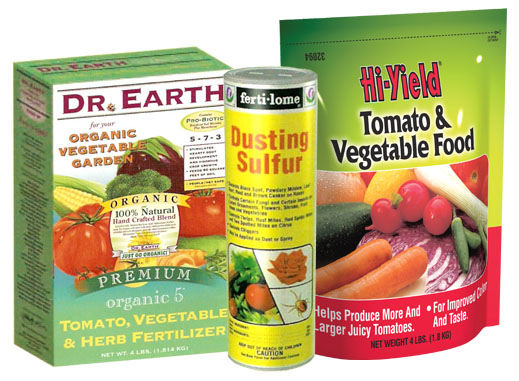TIPS FOR GROWING TOMATOES
Tomatoes may be grown directly from seed or from starts. The time of year at which the seeds and starts are planted is critical, as tomatoes planted outdoors too early in the year run the risk of being damaged by frost. Tomatoes grown directly from seed should be started in pots six weeks before the last frost and then kept indoors until the frost season has ended. Tomatoes grown from starts should also not be planted outside until after the last frost. In the Northern Indiana/ South-West Lower Michigan area the final frost of the season occurs around the 23rd of May, so tomato starts grown in this region should not be planted outdoors until after the 23rd and tomato seeds should be planted six weeks earlier, around the 11th of April.
When planting outdoors, select an area for growing that receives a lot of sun. If you are growing tomatoes in the ground, be sure to space the young plants at least two square feet apart from each other so that they have enough room to develop. If you are growing tomato plants in containers, be sure to select a pot or planter that will be large enough to accommodate the fully developed plant. Ideally, container grown tomatoes should be in a pot large enough to hold a minimum of 15 gallons of potting soil. All tomato plants, whether they are grown in the ground or in containers, benefit from rich soil that is full of nutrients. Organic potting soils and organic planting mixes contain the beneficial microbes and nutrients tomato plants need to grow and produce fruit. Mixing organic compost or planting mix into the soil before placing the plants in the ground gives the soil the added boost of nutrients it needs to produce strong, healthy plants. Organic potting soil and organic planting mix may also be used exclusively for container grown tomatoes. Additionally, a regular feeding of organic fertilizer will provide the plants with a steady flow of nutrients throughout the growing season.
